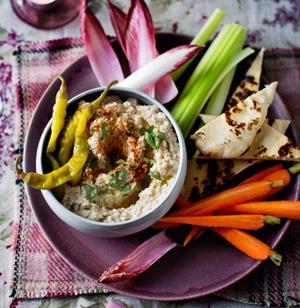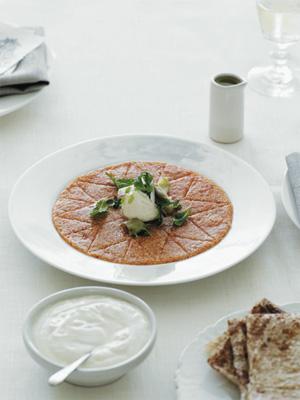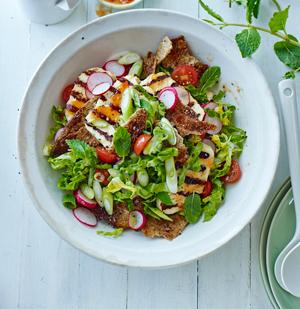Food
The secret to good Lebanese food
by Sarah Alcock
This week, modern Middle-Eastern chef, Greg Malouf will be revisiting our fine capital and taking residence at The Imperial restaurant in west London for three evenings only. We chatted to Greg from his amazing restaurant kitchen in the heart of Dubai (where it was 44 degrees) and asked him about the secrets to amazing Lebanese cuisine...
1. The 5 key ingredients to Middle-Eastern cuisine:
'Natural yogurt and organic chickpeas in jars, would be top of the list. I always have a jar in my pantry. Then spices like Harissa, Za'atar and Sumac.'
2. How to make the perfect hummus:
'Hummus is the best gauge for all good Arabic or Lebanese restaurants. But it's not that simple to get right - hummus is a careful balance of four ingredients: good quality chickpeas, real lemons (not citric acid), quality tahini and locally grown garlic. Mine incorporates ice to keep it white and needs a powerful food processor to get the perfect consistency.'

You can't beat good hummus...
3. Lebanese home cooking:
'There is always food on the table. Everyday dishes use grains, pulses, vegetables and offal. On bigger occasions there will be a whole fish and lots of little pastries.'

Salmon kibbeh - made with raw salmon, one of Greg's specialities
4. What to drink:
'Traditionally, the national dish of Lebanon, Kibbeh Nayyeh, (a raw lamb mince dish with bulgur wheat and spices), is eaten with Arak - a very strong aniseed-based alcoholic drink. The alcohol content is supposed to kill the bacteria in the raw meat - that's what I was told.'
5. Lebanese coffee:
'It's very strong, but I like it. The coffee beans are powdered and not filtered. The water is brought to the boil and the powder mixed in with a bit of sugar, then brought to boil again. When you pour it into a cup let it sit for a few minutes so some of the sediment sinks. I use it in pastries and to flavour ice cream.'
6. A cracking Lebanese dinner party:
'For starter I would keep it simple like lentil soup, salad and dips. For main I would do something like mixed spices rubbed onto barbecued meats served with rice. Dessert, I would suggest trying Muhallabi; it's like a milk custard. You bring milk to the boil with sugar and cornflour - then add mastic. When it has set, make a rose syrup to pour on top and finish with chopped pistachios.'
7. Lebanese breakfast:
'Cheese, olives, boiled or fried eggs, cucumbers and lots of fresh Arabic bread. They also have a Manaeesh, which is like a pizza topped with sweet cheese, meat or spices and olive oil.'
8. It's mainly vegetarian:
'There are so many vegetables, pulses and grains on offer. We have lentil stew with rice topped with crispy onions and served with a fattoush salad. There are hundreds of rice dishes with beans, okra, tomatoes and aubergine.'

Our halloumi fattoush salad...
9. The most used herbs in Middle-Eastern cuisine:
'Coriander, parsley, mint and lemon.'
10. The best lesser-known Lebanese foods:
'There are lots of regional dishes that are missed off restaurant menus like Shish Barak, which are little meat dumplings. There is not a lot of offal used in restaurants or pastries.'
Greg will be hosting three evenings at The Imperial restaurant. For more information, click here.












